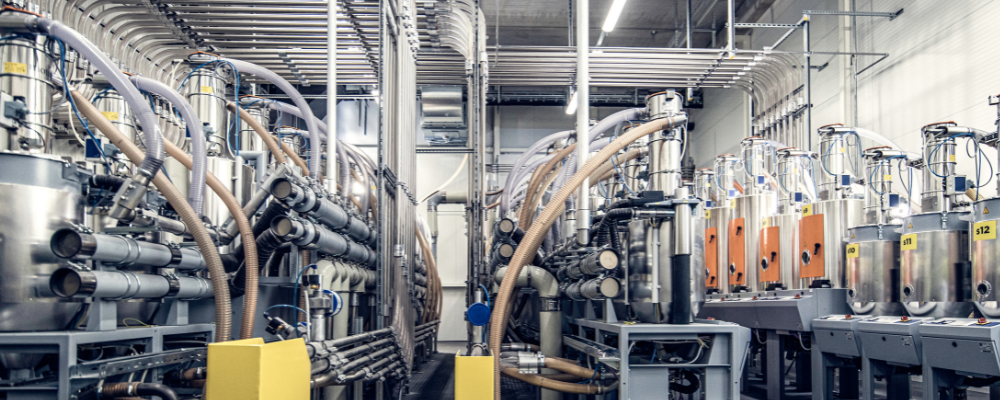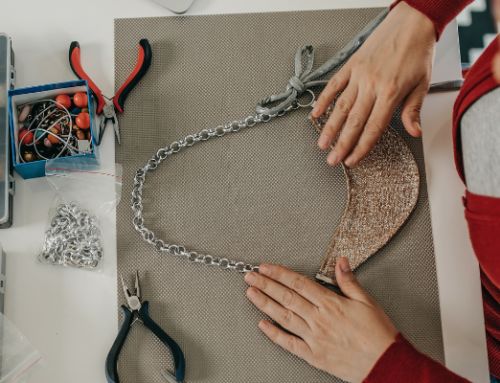With most businesses operating under time pressures, a broken down machine can spell disaster. Whether it’s a farm bringing in the harvest, a vineyard pressing grapes for its next vintage or a faulty lift preventing customer access to a building, it’s highly likely that businesses are reliant on at least one piece of machinery.
Machinery breakdown is costly. As well as the expense of having to repair or replace the machinery, businesses face a variety of additional, and potentially even larger, costs and financial losses when a piece of equipment is out of action.
The cost of machinery downtime
First and foremost, production is likely to be affected, which could see customer orders delayed or cancelled. Additionally, although operations may have ground to a halt, running costs such as rent, utilities and employee wages would still need to be covered.
Downtime can bring further expenses in some sectors. A faulty air conditioning system in July could mean a hotel has to reduce the room rate or invest in fans to help guests stay cool. And, for an agricultural business, a crop could be lost completely if a cranky combine means the farmer is unable to harvest at the optimum time.
In the worst cases, a broken or damaged piece of machinery could even lead to the business folding. Having to meet the costs of running a business while operations are mothballed can quickly lead to cash flow and liquidity issues. And, even if the business survives this financial squeeze, there’s no guarantee that customers will stick around. Some may find new suppliers, especially where it takes many months to repair or replace the machinery.
How Machinery Business Interruption insurance can help
Machinery Business Interruption insurance can help to keep businesses running.
Where a piece of plant or machinery does break down or is damaged, this provides cover for the loss of revenue or profit.
All sorts of machinery breakdowns can trigger a claim. As well as mechanical and electrical defects, overheating or electrical burnout could stop a piece of plant or machinery from operating and result in a claim. Damage caused by operator error, internal explosion or collapse is also covered, as are issues such as cracking and overheating of boilers and other steam plant.
A policy could even be extended to cover failure of supplies that affect machinery, for instance flooding at the local substation or third-party damage to water pipes.
Machinery Business Interruption insurers also recognise how this type of event can affect a business. Policies can make interim payments, enabling a business to meet running costs such as wages or rent while a piece of machinery is being repaired or replaced.
Additionally, as well as covering losses incurred while the machinery isn’t working, machinery business interruption insurance can also cover claims preparation costs to support a claim where liability has been accepted.
Tailoring cover to suit the business
All sorts of plant and machinery can be covered under a policy, from production plant and passenger lifts though to circular saws, cranes and CCTV systems.
With it being such a common – and important – part of a business’s operations, machinery business interruption insurance is suitable for a wide range of trades and industries including manufacturing and engineering companies, agriculture, property owners and hotel and leisure facilities.
The size of the business isn’t important as cover is flexible and can be tailored to the needs of any organisation, large or small. Providing the piece of machinery is key to operations, it doesn’t matter if it’s a small mobile vehicle repair business or a large multi-site engineering company making parts for motor cars.
A business can also choose whether to cover all its plant and machinery or just the key pieces. As an example, one manufacturing firm might choose to cover everything, knowing operations would grind to a halt if there were any breakdowns on the production line, while another may only want to cover key items, as much of the work could be redirected to its other sites if there was a problem.
The level of cover is also flexible. Policies can be arranged for either loss of gross profit or for loss of revenue, depending on the needs of the business. Additionally, indemnity limits and periods can be tailored to suit the business. For example, if an engineering firm has a specialist piece of machinery that could take up to a year to repair, this can be reflected in the limits.
Working alongside other insurances
With businesses so reliant on their machinery, this type of insurance is often combined with other covers, most commonly an All Machinery policy and/or Property Business Interruption. This gives the business the peace of mind that, if a piece of machinery or plant does break down or is damaged, it won’t be hit with a series of chunky bills.
There are important differences between these policies. While an All Machinery policy covers the cost of repair or replacement, the machinery business interruption insurance will take care of the loss of revenue or profit while the piece of equipment is out of action.
Similarly, although Property Business Interruption cover can cover machinery, a claim would only be accepted where the item was damaged or lost as a result of perils such as fire, flood or theft. Standalone Machinery Business Interruption product gives much broader cover, including events such as mechanical failure, electrical short circuiting as well as damage resulting from an accidental event, explosion, operator error or collapse.
Keeping everything working
Having a Machinery Business Interruption policy in place gives a business owner the peace of mind that if the production line does grind to a halt or a key piece of machinery or plant fails to start, financial losses are covered. But, as most businesses would see this as a financial safety net if the worst did happen, they can also take advantage of advice from their insurer and broker to help them minimise risk.
To reduce the risk of breakdowns, every piece of machinery benefits from regular maintenance and, where necessary, engineering inspections to ensure it’s in good working order. Regular maintenance, whether that’s a daily clean to ensure moving parts aren’t restricted by dust and debris, or a monthly oil change to keep everything running smoothly, can reduce the risk of a breakdown and help to extend the life of the machinery.
Similarly, as well as ensuring a business meets its legal responsibilities around safeguarding employee health and safety, engineering inspections can help to identify any potential issues early. This could be the first signs of a fault on a piece of machinery or even indications that it isn’t being operated in the correct way. Spotted at this point, a repair – or operator training – is likely to be significantly cheaper and require much less, if any, downtime.
But, while a robust approach to maintenance and inspections should help to reduce the risk of breakdowns, damage and accidents can still happen. Having a Machinery Business Interruption policy in place will help to keep the business afloat.
We are here to help
Please do get in touch if you would like to know more about how we can support you and your business.
This article was adapted from an article by Allianz which can be found here.






